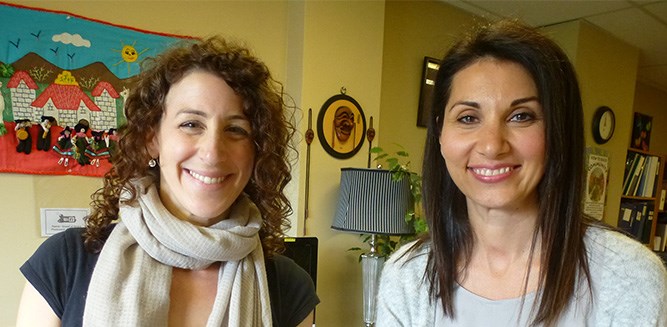With the end of the school year and summer just around the corner, some teens can look forward to new routines, new friends and new activities as they break from their day-to-day school responsibilities.
But for some youths whose lives are hampered by anxiety, summer may not be much better than any other time of year. Concerns about family, friends and day-to-day responsibilities can keep children suffering from anxiety from living their life to the fullest.
But a new summer program called Mindful Youth, offered by Share Family and Community Services, can teach them skills to cope.
Counsellors Lisa Ackerman and Mario Fabiano, who lead the program, said a growing number of young people are being diagnosed with an anxiety disorder. While they don’t know if the problem is increasing or that diagnoses are on the rise, they say feelings associated with anxiety can be reduced with better insight, coping skills and strategies.
“When your day-to-day life is affected, that’s when you need to take steps,” said Ackerman, who also supervises Share’s youth substance use services.
People respond to fear or a stressful situation with a fight-or-flight response that dissipates when the source of the stress is found to be harmless or goes away. But people with anxiety can’t switch off the feelings and can fixate on the problem to the point that it affects their activities and social relationships, the two say.
“Even though there is no threat, they still feel the tension,” said Fabiano, a clinical counsellor with Share’s Talking Helps program.
Together, the two have planned a program for 12- to 14-year-old teens to teach them how to identify anxiety and ways to deal with it. The program runs from June 21 through Aug. 9 and includes an orientation and a wrap-up with parents.
Fabiano said it’s important to include the parents in the dialogue because they can help reinforce the strategies at home; as well, learning about anxiety will help them understand the health concern.
Information will include how anxiety and worry work, healthy coping skills and ways to work with thoughts, feelings and emotions. One technique, called mindfulness, involves paying attention to the present moment and acknowledging what feelings and emotions arise without judgment.
It takes time and practice to integrate mindfulness but Fabiano said the technique of grounding your attention to better deal with perceived threats can work.
“It brings you back to the present moment,” she said, “and away from the thoughts of the future or past,” where worry can breed.
The counsellors said the program should be beneficial to middle school and high school students because they are hearing reports from School District 43 teachers that anxiety is a problem for some. If it’s successful, the Mindful Youth program could be organized for other age groups.
Teens who might benefit from the program are those who are avoiding social interactions and are interested in substance use, struggle with attending school and extra-curricular activities, say they are feeling judged, and are exhibiting physical symptoms, such as headaches and stomach problems.
“If we can start to learn to cope with situations at a young age, it’s better than waiting until you’re older,” Ackerman said.
• The program will run at Share’s Port Moody office, located at 2615 Clarke St., and the deadline to register for the small group program is June 14. The cost is $50 but there is a sliding scale. Call 604-937-6969.
ANXIETY: WHO’S AT RISK?
• Gender: Women are twice as likely as men to be diagnosed with anxiety
• Age: Anxiety most often appears in youth.
• Personality factors: Children who are shy are more likely than other children to suffer from anxiety.
• Family history: Anxiety disorders run in families.
• Social factors: People with fewer social supports are more likely to develop anxiety disorders.
• Occupational risks: One kind of anxiety disorder, post-traumatic stress, can be linked to a person’s job.
• Chronic illness: People who have chronic mental or physical illness often worry about their illness, which can lead to the development of an anxiety disorder.
– source: Canadian Mental Health Association



